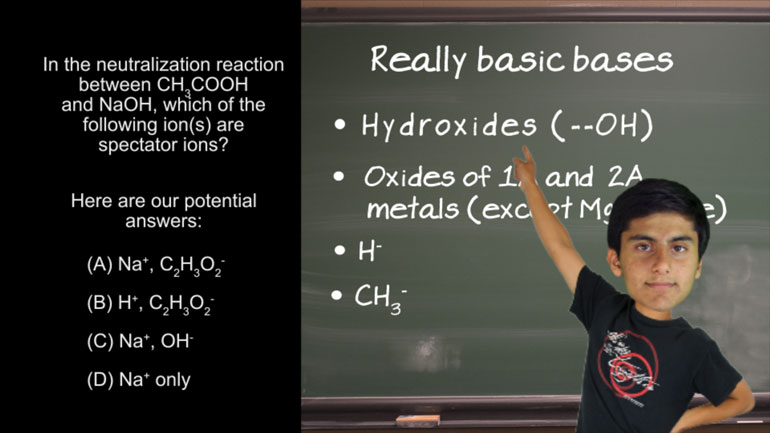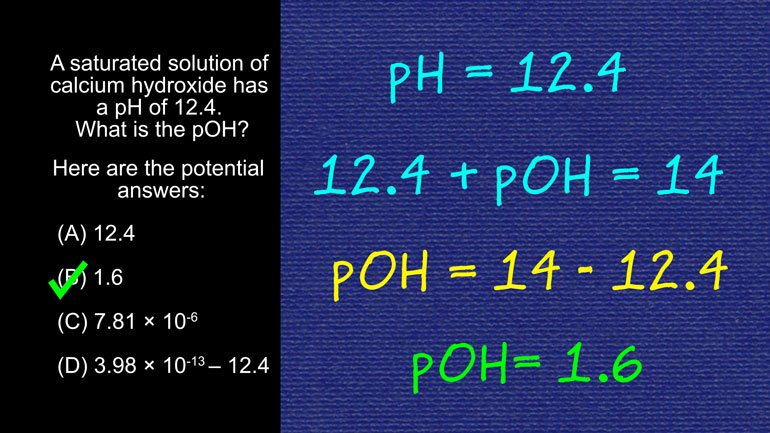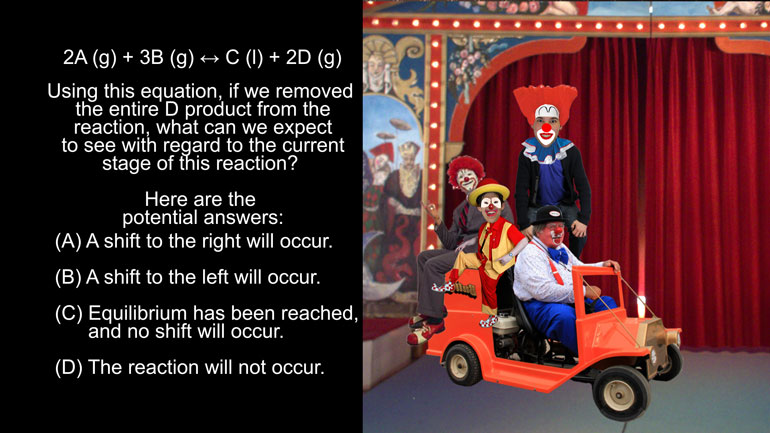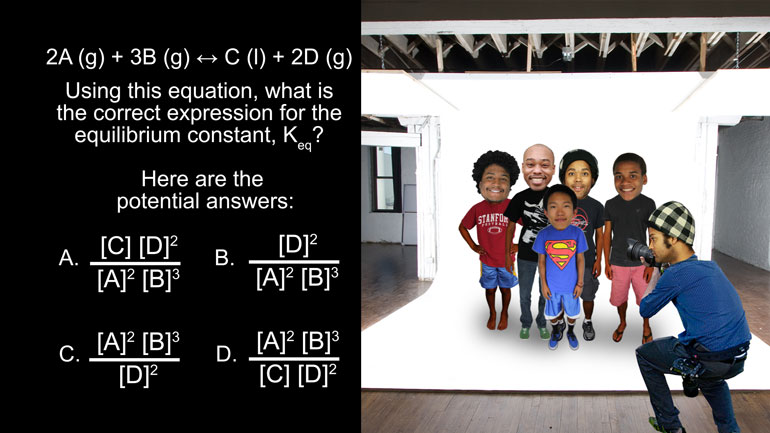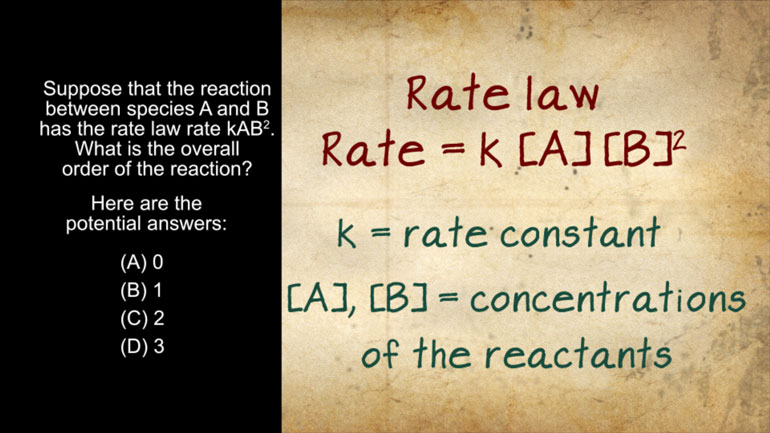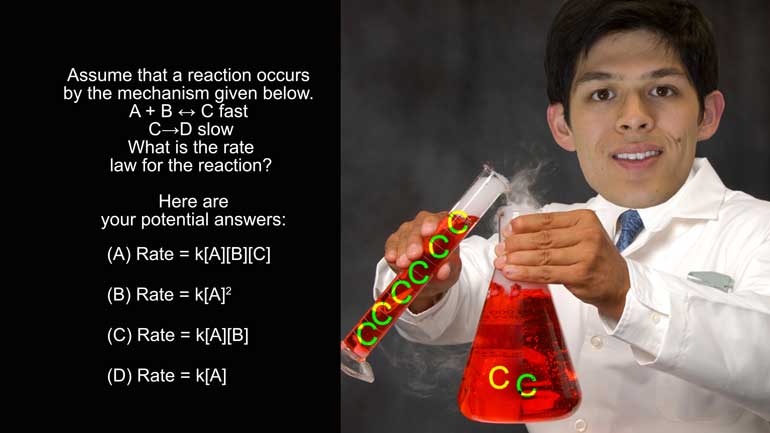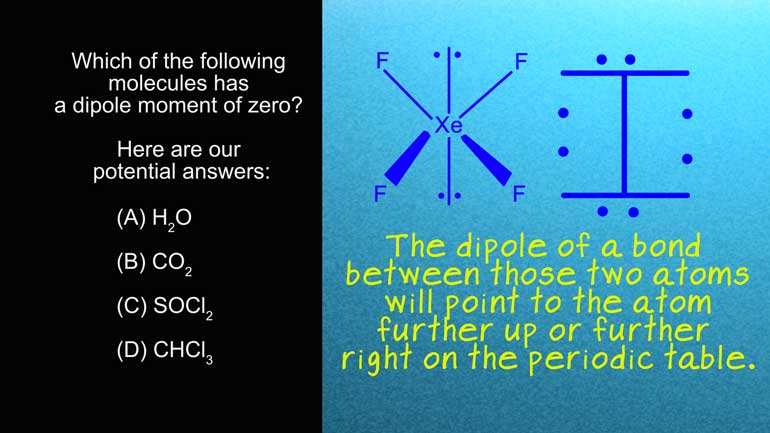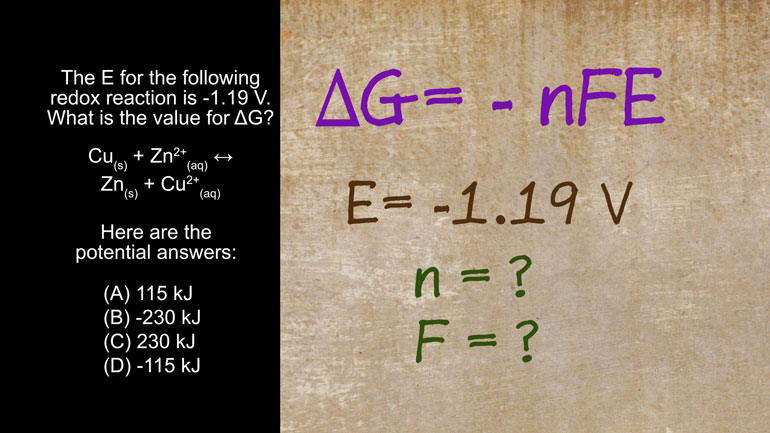ShmoopTube
Where Monty Python meets your 10th grade teacher.
Search Thousands of Shmoop Videos
Forming and Breaking Bonds Videos 6 videos
AP® Chemistry: Forming and Breaking Bonds Drill 1, Problem 2. Which of the following substances is soluble in water?
AP Chemistry 1.3 Forming and Breaking Bonds. Which of the following ions are spectator ions?
AP Chemistry 2.2 Forming and Breaking Bonds. Find the pOH.
AP Chemistry 2.2 Forming and Breaking Bonds 11 Views
Share It!
Description:
AP Chemistry 2.2 Forming and Breaking Bonds. Find the pOH.
Transcript
- 00:03
Here’s your Shmoop du jour, brought to you by base.
- 00:07
It's what Meghan Trainor is all about… [Meghan Trainor on stage singing]
- 00:09
Okay, here’s our question:
- 00:11
A saturated solution of calcium hydroxide has a pH of 12.4.
- 00:15
What is the pOH?
Full Transcript
- 00:17
And here are the potential answers: pH 12.4, eh?
- 00:21
This problem ought to be pretty…basic. [Ph 12.4 shown on Ph scale]
- 00:22
Heh.
- 00:23
Okay, in all seriousness, we know this subject can be tough, but as far as chemistry problems [Boy with chemistry formulas on a chalkboard]
- 00:27
go, this one’s not too bad.
- 00:29
The key equation we need to remember for solving this problem is pH plus pOH equals 14.
- 00:34
This equation is always valid for any aqueous solution, so whenever we know the pH, we can [Hand points to pH and pOH hiding behind bushes]
- 00:39
easily find the pOH.
- 00:41
In this case, the pH is 12.4, so our equation becomes 12.4 + pOH = 14.
- 00:47
A little simple math, and boom.
- 00:49
Our pOH has to equal 1.6, which is answer choice B.
- 00:54
That problem was so basic, we’re surprised it wasn’t wearing UGG boots and drinking [Man wearing ugg boots and takes sip of pumpkin latte]
- 00:58
a pumpkin spice latte…
- 00:59
…What?
- 01:00
They're comfy.
- 01:01
And this tastes like fall in a cup.
- 01:03
Don't judge.
Related Videos
AP Chemistry 1.3 Chemical Reaction Rates. What is the overall order of the reaction?
AP Chemistry 1.4 Chemical Reaction Rates. What are the correct units for a second order rate constant?
AP Chemistry 1.5 Chemical Reaction Rates. What is the rate law for the reaction?
AP Chemistry 3.2 Laws of Thermodynamics. What is the value for ΔG?

